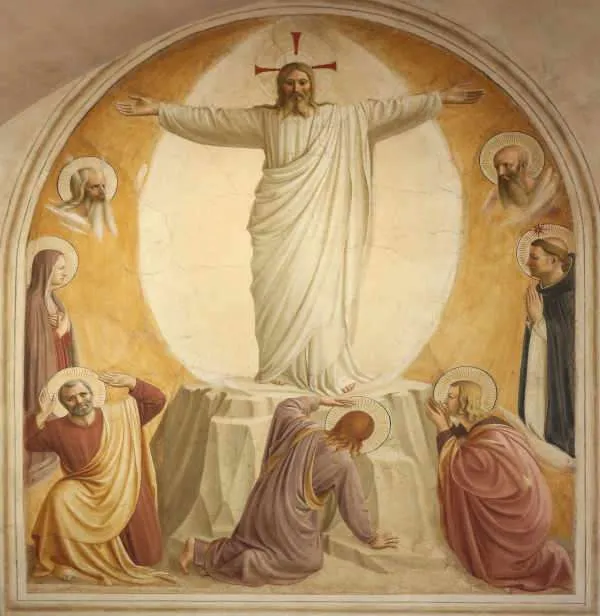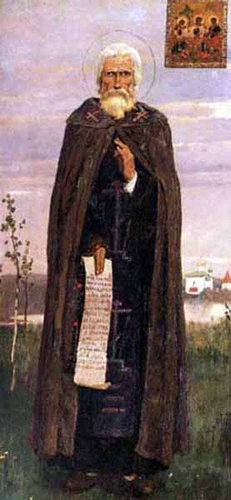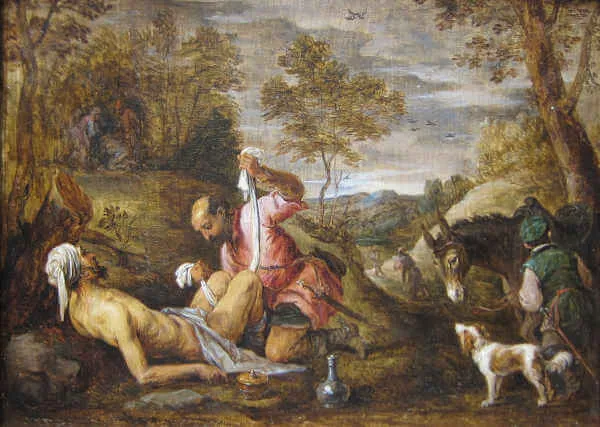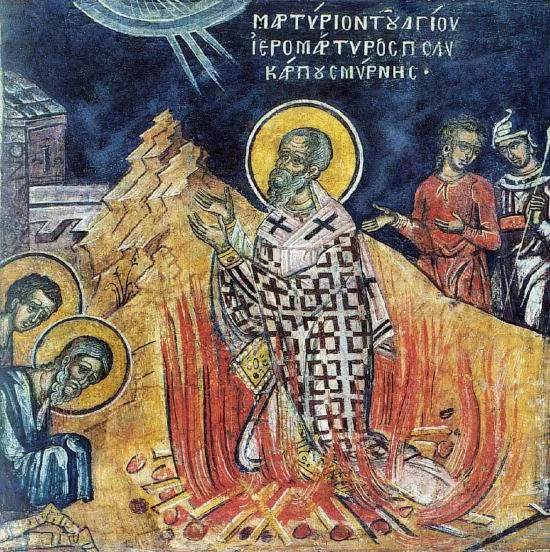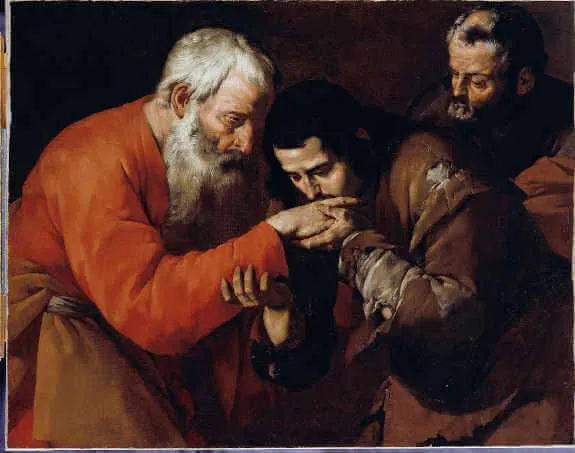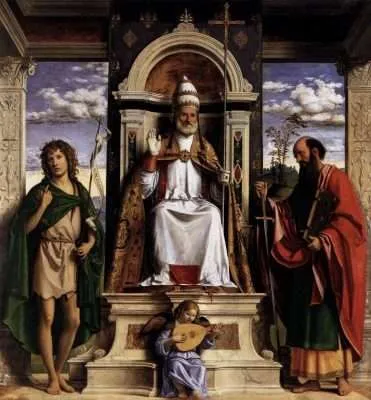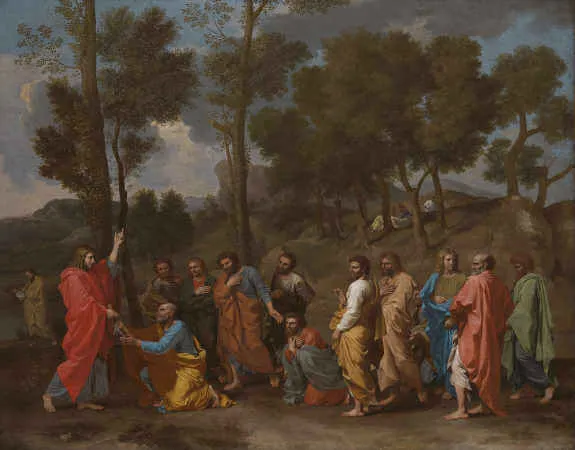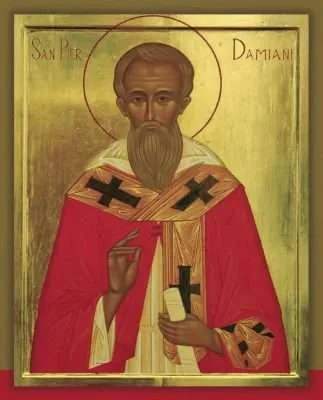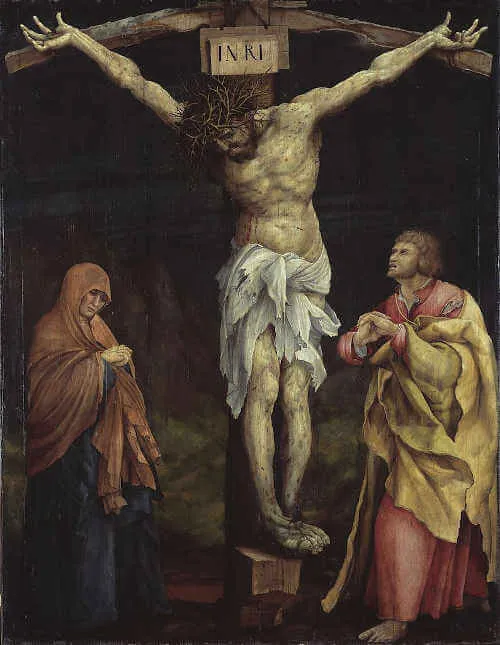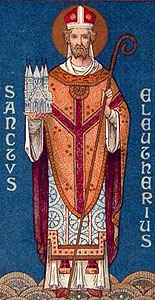Mark 9:2-3
Glory Overshadowing the Cross
“Jesus took Peter, James, and John and led them up a high mountain apart by themselves. And he was transfigured before them, and his clothes became dazzling white, such as no fuller on earth could bleach them.”
Reflection:
Just six days prior to this glorious event of the Transfiguration, Jesus spoke for the first time to His disciples about His pending crucifixion and death. He taught them that “the Son of Man must suffer greatly and be rejected by the elders, the chief priests, and the scribes, and be killed, and rise after three days” (Mark 8:31).
Recall that Peter had a difficult time accepting this teaching. Jesus went on to rebuke Peter for his refusal to accept this prophetic teaching and further explained that “Whoever wishes to come after me must deny himself, take up his cross, and follow me” (Mark 8:34). These disciples then had six days to ponder this prophecy of our Lord before witnessing the Transfiguration.
In your life, is there something that God is trying to say to you that you have difficulty accepting? If so, it will most likely be related to God’s call to you to take up your cross and follow Him. The Cross of Christ comes in many forms throughout life. It might be experienced when we allow the passion of anger to die so that pure mercy can be offered to one who has hurt us.
Or it might be that God is calling you to step out in faith to embrace some endeavor that requires courage and trust. Or it might be that God is calling you to accept some hardship in life that is difficult to accept, such as the loss of a loved one, an illness, the loss of a job or any other difficulty that you struggle to accept with love and trust. Bitterness, resentment, anger, fear and the like are often the most difficult crosses we are called to embrace and let die.
If this resonates with you, then this story of the Transfiguration is for you. After giving these disciples six days to ponder the difficult news of His coming Cross, Jesus gives them hope and inspiration through this sacred encounter. Though it lasted for only a short time, this manifestation of Jesus’ glory was all that these disciples needed to begin to accept Jesus’ prediction of His passion.
On one hand, they feared what Jesus said was going to happen. But on the other hand, they saw His glory and majesty. By combining these two experiences, these disciples were given a new hope and strength to trust that whatever was to happen in the future, God was in control.
We also need the consoling revelation of our Lord’s glory to help us navigate the difficulties we will endure. For some, life is good, very good, and they walk with joy and ease with our Lord. But for others, life has taken a difficult turn and confusion has set in. If life is good for you right now, then rejoice that you are currently sharing a taste of the glory of the Transfiguration.
Give thanks to God and tell Him with Saint Peter, “Rabbi, it is good that we are here!” Give thanks to him for the joy and consolation you currently experience. But if life is difficult for you right now, ponder those six days during which the disciples struggled with the prediction of the Lord’s passion.
Think about their confusion, doubts and fear. As you do, turn your eyes up the mountain. Know that the glory of God awaits you and that He wants to free you from all fear and anxiety. The mountain is climbed by a firm faith that is grounded in prayer. Make that journey with our Lord through prayer.
Reflect, today, upon this holy mountain to which you are called. Know that as you climb it with perseverance and determination, hope and joy will be given to you. Pray for the ability to trust in the God Who not only died a cruel death but also is radiant in glory for all eternity. Trust Him, turn to Him and commit to the journey ahead.
Source: https://catholic-daily-reflections.com/2024/02/24/glory-overshadowing-the-cross/


